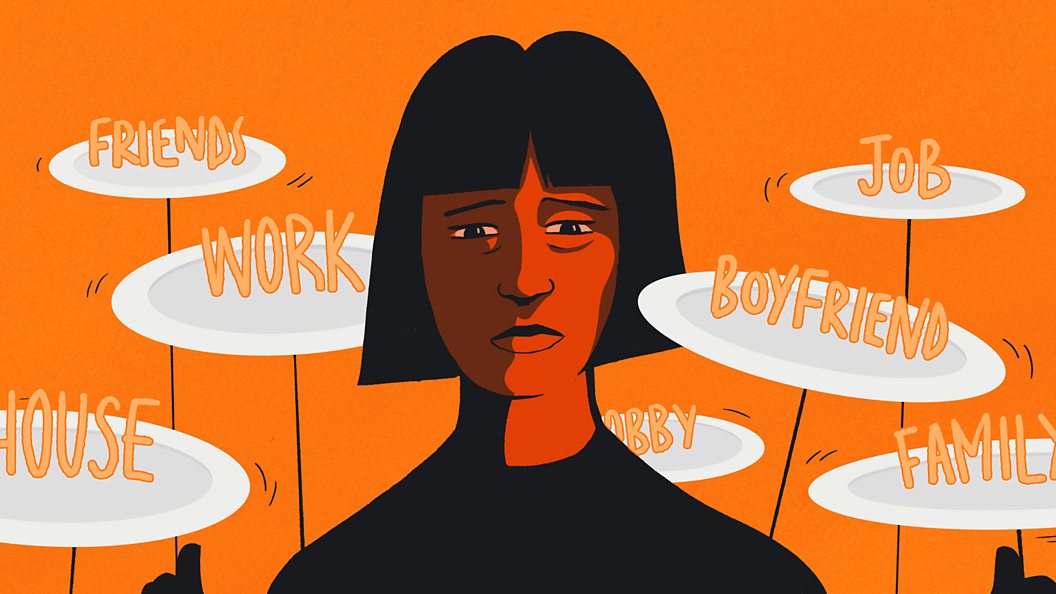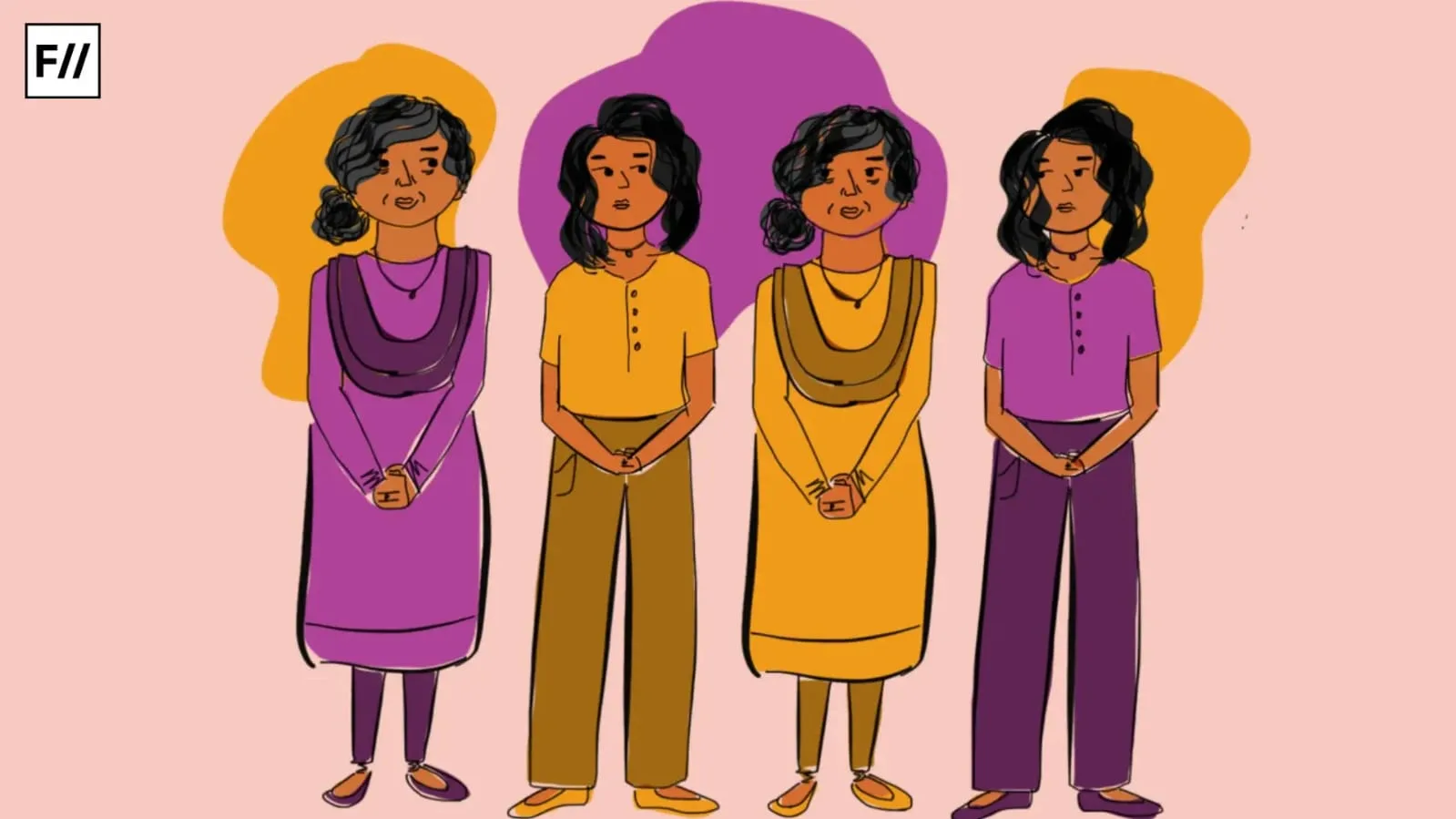Editor’s Note: This month, that is October 2019, FII’s #MoodOfTheMonth is Mental Health And Well-Being, where we invite various articles narrating people’s experiences of living or living with someone with mental health issues. If you’d like to share your story, email us at pragya@feminisminindia.com.
A world full of distractions welcomes us as soon as we open our eyes in the morning, waking to the city noise and the twenty-seven notifications waiting for us to explore the unexplored. With everything readily available at our doorstep in exchange for money, life for urban, well-educated, independent millennials takes form with tangled realities and multiple inner conflicts. Our generation has experienced the age before and after the internet was born, and the contrast is stark when we reminisce the good old days. Of course, we appreciate what we have, how the world greeted us with open arms, naked and accessible. But since our childhoods were fairly simple and noiseless, the rules of life that were taught to us waned over the years, giving way to new kinds of opportunities, connectivity and intersections.
Our generation is cursed to reminisce the past and fear the future; a state of utter confusion grabs us by the throat and desperately beseeches us to change the way we have functioned all our lives. Most of us were influenced by our parents’ opinions and ideas, and we adopted them mindlessly, taking them to be universal truths. Some of us were rebels, and we managed to shimmy our way out of the familial mind entrapments. The former group’s way of thinking can be defined as rigid, limited to and accepting of certain ideas and schools of thought while shutting out all other possible realities, for that is how their parents cruised through life.
A certain kind of complacency coupled with comfort and security seems like a fair deal then, and life is declared to be good. The second group, on the other hand, is often confounded by the multiple realities that exist and since there is no official guide to seek help from, they embark on a journey to explore their own meaning to life and the rules to live by. This comes with immense discomfort, not to mention challenges of all sorts – scepticism, nihilism, hopelessness, and at times, despair. The common denominator between the two groups is a shared struggle to find their identity in this increasingly chaotic world.
Our generation has experienced the age before and after the internet was born, and the contrast is stark when we reminisce the good old days. Of course, we appreciate what we have, how the world greeted us with open arms, naked and accessible.
The urban millennial is blessed with a good job, innumerable possessions, gorgeous technology, limited freedom to make their own decisions and find partner(s) of their choice, social media, and e-commerce. The list is not exhaustive. Yet the good job sometimes practically pushes them towards a mental breakdown, literally breaks their back, and turns them into a modern-day, handsomely paid slave. The things they own do end up owning them; their sense of financial independence takes a tangible form with every new addition to their wardrobe or home décor.
Also read: On Anxiety And Panic Attacks: Why We Need To Take Them Seriously
The freedom to make their own decisions comes with the burden of unfulfilled expectations and unmitigated guilt. The attempt to find a partner comes with promised frustration and Tinder stories. Social media, their ultimate saviour, also leaves them unnecessarily anxious, insecure and cluttered. The urban millennial is thus incapable of pointing out what exactly went wrong and what needs to be changed in order for them to make sense of it all.
Social media, their ultimate saviour, also leaves them unnecessarily anxious, insecure and cluttered. The urban millennial is thus incapable of pointing out what exactly went wrong and what needs to be changed in order for them to make sense of it all.
While growing up, they were told that education is the first priority, so they did not even think about what their identity was beyond their grades. Puberty hit, and they struggled with self-image and self-esteem issues, which took years to heal. With the society constantly shaming them for their body, the colour of their skin, their facial features, body hair, sexuality, gender, caste, class, and ‘odd’ career choices, it became extremely difficult to be able to find their place in the world.
And now they are a product of so many complicated fusions and fissions, that all they can do is, wait for Fridays and dread Mondays. The urban millennial has not been able to scratch the surface of their true selves. Their mind controls them, yet they get so edgy with the idea of seeking psychotherapy. They readily become part of the stigma around mental health, shutting their eyes to their own psyche.
Perhaps what the urban millennial needs is verbalizing their own thoughts, for self-exploration has never been a part of our curriculum. No one told us that discussing our childhood and adolescent experiences can give us some clues about why we feel the way we do; why we have anger issues, why our hearts are always racing with inexplicable anxieties, why we are still not over certain things, why we are constantly fixated on certain habits, why we haven’t been able to completely forgive our parents, why we are so distrustful, why we have submitted to escapism, why we are afraid to wear that outfit, why we cannot tell the world we are not ‘normal’ and that ‘normal’ does not exist, why we are so comfortable and numb.
Also read: Queering Mental Health: Mental Health From The Margins
This lack of self-knowledge, introspection and analysis has led the urban millennial to lead a life without direction and to find comfort in distractions. Perhaps it is time to seek discomfort, to quit self-abuse, and to achieve that clarity of mind that the urban millennial is fortunate enough to be able to explore and most importantly, afford. Perhaps it is time to go to therapy.
Featured Image Source: BBC
About the author(s)
Priyanka is an unfulfilled engineer and an MBA graduate from IIM Indore. She is a writer, interested in carving the world through her biased lens, painting pictures with heavy imagery and highlighting the mundane, often ignored, but essential aspects of life. Her latest project is The Mental Indian, an attempt to de-stigmatize mental health in India, through stories, perspectives and conversations.




